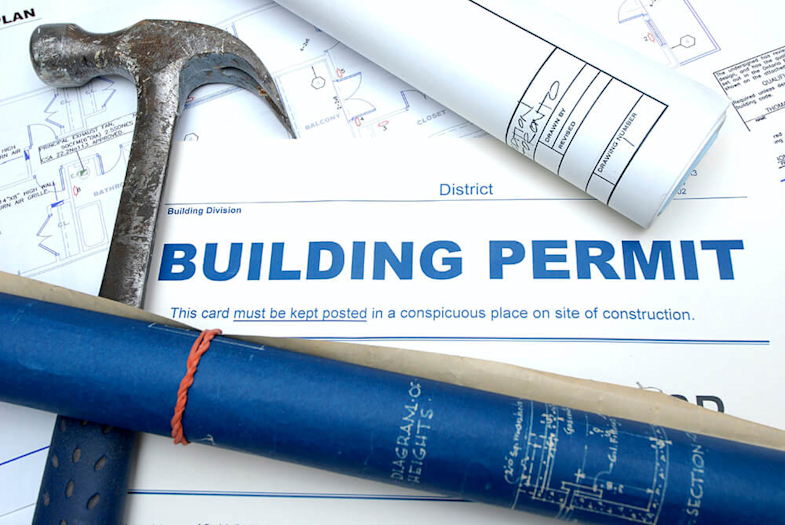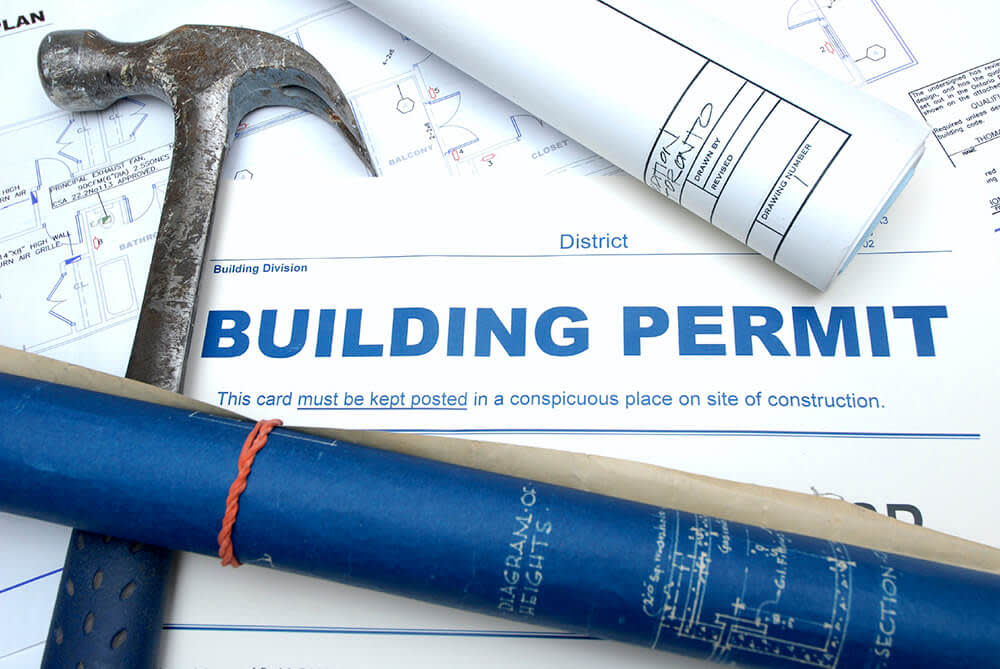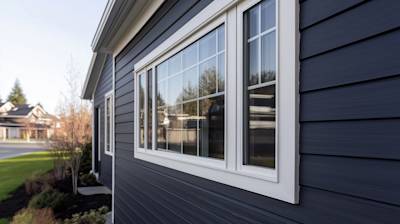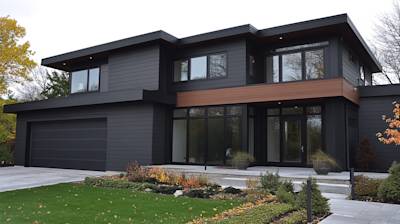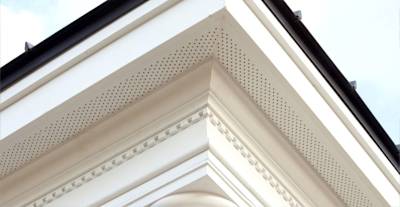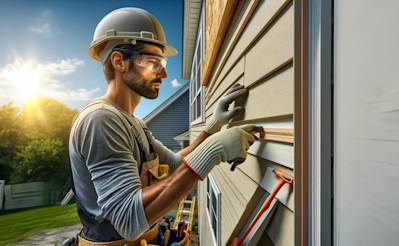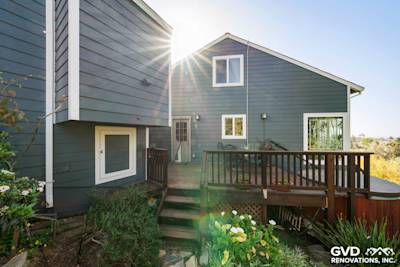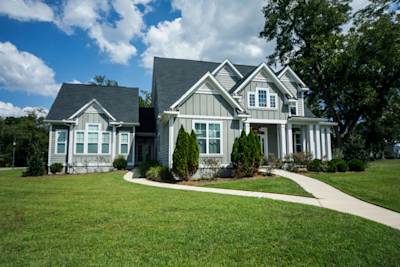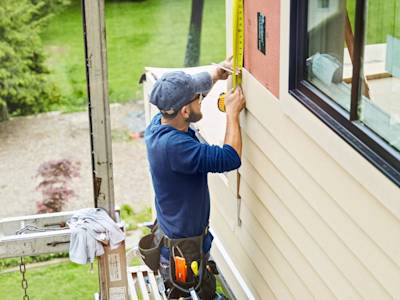Navigating building repairs can be tricky, as many projects require a permit. Failure to realize and obtain permission can result in fines and costs later down the line, or cause complications if you ever want to sell your home.
If you're only performing simple repairs, a permit might not be required. However, any structural work or work that involves electrical, heating, or plumbing elements frequently requires a permit.
The good news is if you’re working with a contractor, they'll usually apply for the necessary permit for you.
Despite this, don't take it lightly if a tradesperson suggests you don’t need one. Check with the building department regardless and educate yourself on the legal requirements that may accompany your repair project.
If you’re considering replacing or repairing the siding on your home, you might have questions like, "does siding repair need to be officially permitted?"
Building Permits: What You Need to Know
Building permits are required for specific structural home projects. The local government requests these as evidence that the building department knows you're undertaking construction work to your home or office.
This allows the building department to inspect the work when completed to ensure it conforms to the building code.
This process helps to ensure the building remains safe and structurally sound. This is significant both for the current occupants and future buyers. As such, an inspection by the building department can be in your favor.
They can ascertain that your contractor has completed the work to an excellent standard and erase any concerns about the security of the finished project.
Building codes vary from state to state. Most have their roots in the international building code or resemble it.
When are Permits Usually Required?
If you're conducting any structural work to the property, building permits are commonly required. This means anything that might remove structural supports or add more weight to the home.
Electrical work or that which affects heating or plumbing may also need to be permitted. These elements could risk current or future occupants if completed incorrectly.
Examples of projects that require permits (across most states):
- Changing a house’s roofing
- Demolishing a load-bearing wall
- Installing new electrical wiring or adding circuits
- Installing fences higher than six feet.
- Parking a roll-off dumpster on a public street for demolition
- Any work conflicting with sewer lines
- Building decks off a certain height (usually 30 inches or above)
- Building an addition to your home
- Building a driveway or garage
Examples of projects that don’t usually require a permit:
- Putting down hard flooring (wood, laminate, vinyl) or carpeting
- Laying in a new roof of similar materials
- Replacing an existing sink
- Interior or exterior painting
- Replacing countertops
- Minor electrical work, like replacing light fixtures or outlets
- Detached exterior buildings like workshops or storage shed, so long as they do not receive electrical or plumbing services
- Replacing appliances
You get the idea!
Do You Need to be Officially Permitted to Replace Siding?
Siding can significantly raise the curb appeal of your home and potentially add to the home’s value. It can also add a layer of insulation and protection against the weather.
The material you choose for the siding will play into the cost, but might also affect whether you will need a building permit.
If you intend to replace the siding on your home with new material, either entirely or substantially, you will likely require permission from the building department.
The officials will want to oversee the work primarily because the quality must be able to withstand the weather in your area.
The surface beneath the siding must also be well prepared so moisture won’t seep through the walls. This could cause mold and rot and become a safety concern in the future. This is why an inspector will want to ascertain whether the home is adequately sealed.
If You’re Covering or Repairing Siding…
If you're only covering or repairing some of the sidings on your home, you may not require a permit. This could also apply if you're covering existing material with new siding.
Check with your local building department to see if the repairs fall under a category that requires permits in your area.
Some cities only require permission for siding or roofing if the old material is stripped off. Some repairs may not be large enough to require a permit, such as if you’re only fixing a damaged plank or patching a hole.
This may pose no danger or risk the structural stability of the home. In some cities, any work that involves less than 10 square feet of siding is fine to complete without a permit. Always doublecheck local laws before you commit to any work.
If You're Painting or Staining siding…
You likely won’t require a permit if you're making cosmetic changes to your siding. Painting or staining usually isn't considered a safety risk or a disruption to your community.
However, there may be property covenants in place that determine the appearance of some homes. This is the case, especially in areas of historical significance.
You may be limited in the colors you can use or will need to apply for permission for the local zoning board, homeowner association, or historic district commission.
Contact the Home Improvement Experts to Replace The Siding on Your Home
The good news is minor repairs or cosmetic changes to your siding may not require a permit. Only more structural work involving new material may need to be officially permitted by your local building department.
Check with officials in your area to double-check and contact reliable contractors to navigate the laws on your project.
GVD Renovations & Remodeling are experts in siding renovations in the Sacramento and Bay area. We're a one-stop-shop renovation company based in Roseville, CA. We specialize in siding installation, home remodeling, and exterior renovation services.
Get in touch with us today to tell us about your home improvement project, we're more than happy to help steer you in the right direction!
Tags: siding permit, building permits for siding, permitted siding,



